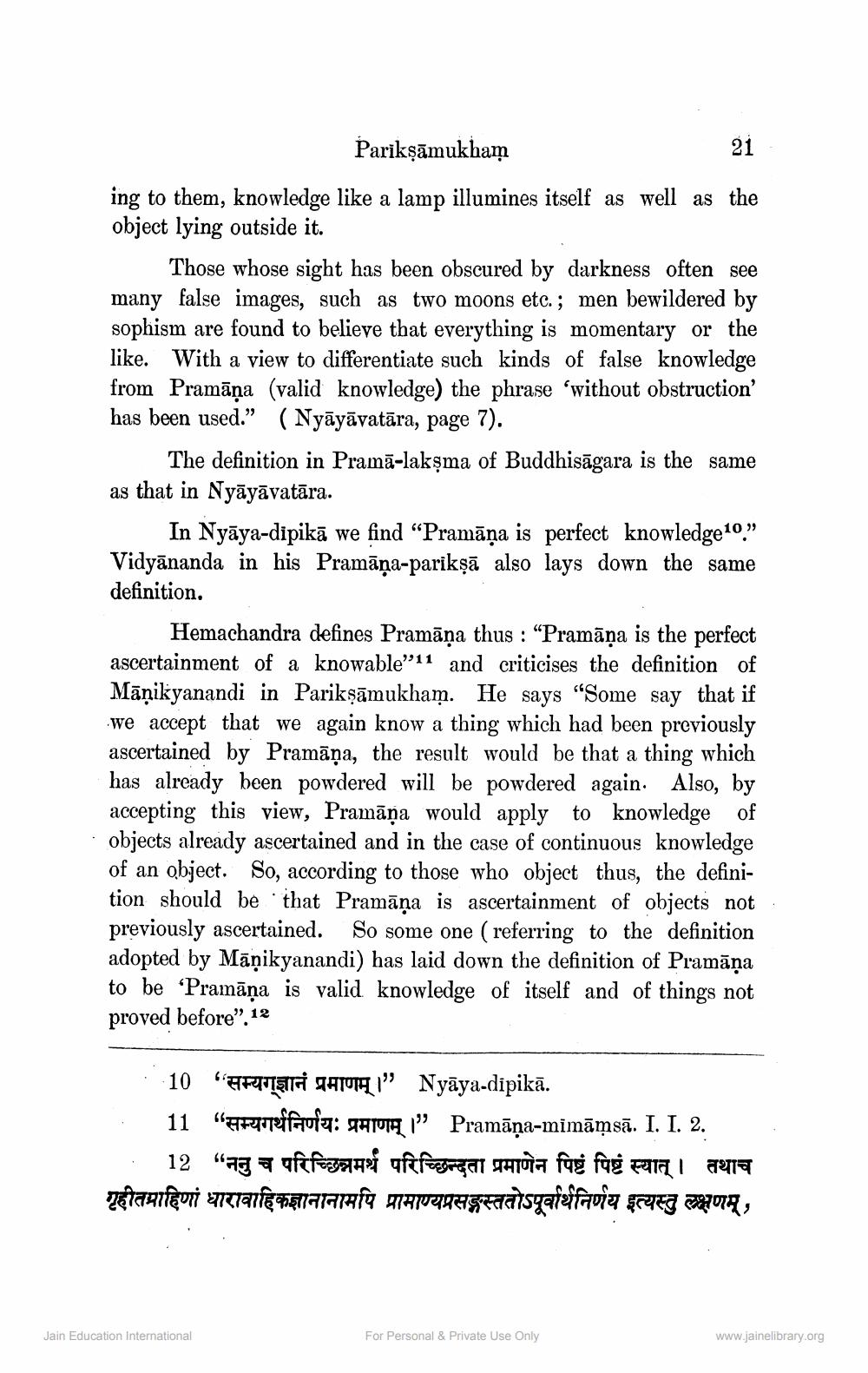________________
Parikşāmukham ing to them, knowledge like a lamp illumines itself as well as the object lying outside it.
Those whose sight has been obscured by darkness often see many false images, such as two moons etc.; men bewildered by sophism are found to believe that everything is momentary or the like. With a view to differentiate such kinds of false knowledge from Pramāņa (valid knowledge) the phrase 'without obstruction' has been used.” (Nyāyāvatāra, page 7).
The definition in Pramā-lakşma of Buddhisāgara is the same as that in Nyāyāvatāra.
In Nyāya-dipika we find "Pramāṇa is perfect knowledge 10." Vidyānanda in his Pramāņa-pariksā also lays down the same definition.
Hemachandra defines Pramāņa thus : “Pramāṇa is the perfect ascertainment of a knowable”11 and criticises the definition of Māņikyanandi in Parikṣāmukham. He says "Some say that if we accept that we again know a thing which had been previously ascertained by Pramāņa, the result would be that a thing which has already been powdered will be powdered again. Also, by accepting this view, Pramāṇa would apply to knowledge of objects already ascertained and in the case of continuous knowledge of an object. So, according to those who object thus, the definition should be that Pramāņa is ascertainment of objects not previously ascertained. So some one ( referring to the definition adopted by Māņikyanandi) has laid down the definition of Pramāņa to be ‘Pramāṇa is valid knowledge of itself and of things not proved before". 12
10 "AFFLERİ TATUTAI" Nyāya-dipikā.
11 "ppreffufa: FATTA, 1" Pramāņa-mimāṁsā. I. I. 2. _12 "ननु च परिच्छिन्नमर्थ परिच्छिन्दता प्रमाणेन पिष्टं पिष्टं स्यात् । तथाच गृहीतमाहिणां धारावाहिकज्ञानानामपि प्रामाण्यप्रसङ्गस्ततोऽपूर्वार्थनिर्णय इत्यस्तु लक्षणम् ,
Jain Education International
For Personal & Private Use Only
www.jainelibrary.org




